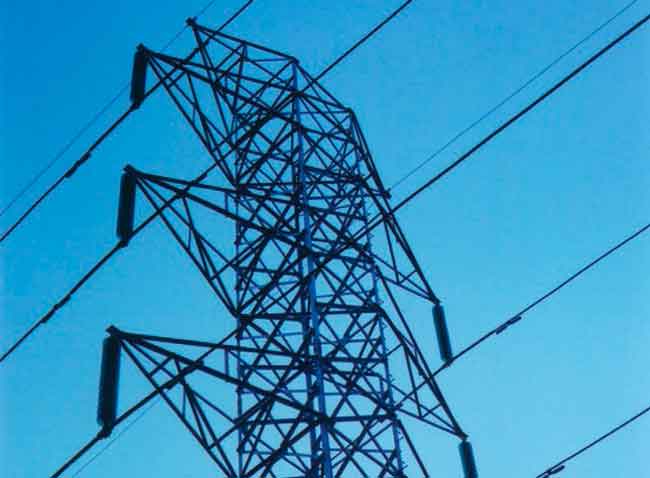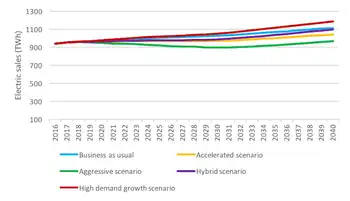French Price-Fixing Probe: Schneider, Legrand, Rexel, and Sonepar Fined

Substation Relay Protection Training
Our customized live online or in‑person group training can be delivered to your staff at your location.

- Live Online
- 12 hours Instructor-led
- Group Training Available
French Antitrust Fines for Electrical Cartel expose price fixing by Schneider Electric, Legrand, Rexel, and Sonepar, after a Competition Authority probe into electrical distribution, collusion, and compliance breaches impacting market competition and customers.
Key Points
Penalties on Schneider Electric, Legrand, Rexel, and Sonepar for electrical price fixing, upholding competition law.
✅ Competition Authority fined four major suppliers.
✅ Collusion raised prices across construction and industry.
✅ Firms bolster compliance programs and training.
In a significant crackdown on corporate malfeasance, French authorities have imposed hefty fines on four major electrical equipment companies—Schneider Electric, Legrand, Rexel, and Sonepar—after concluding a price-fixing investigation. The total fines amount to approximately €500 million, underscoring the seriousness with which regulators are addressing anti-competitive practices in the electrical distribution sector, even as France advances a new electricity pricing scheme to address EU concerns.
Background of the Investigation
The probe, initiated by France’s Competition Authority, sought to uncover collusion among these leading firms regarding the pricing of electrical equipment and services between 2005 and 2012. This investigation is part of a broader initiative to promote fair competition within the market, as Europe prepares to revamp its electricity market to bolster transparency, ensuring that consumers and businesses alike benefit from competitive pricing and innovative products.
The inquiry revealed that these companies had engaged in illicit agreements to fix prices and coordinate their market strategies, limiting competition in a sector critical to both the economy and infrastructure. The findings indicated that the collusion not only stifled competition but also led to inflated prices for customers, illustrating why rolling back electricity prices is often more complex than it appears for customers across various sectors, from construction to manufacturing.
The Fines Imposed
Following the conclusion of the investigation, the fines levied against the companies were substantial. Schneider Electric faced the largest penalty, receiving a fine of €220 million, while Legrand was fined €150 million. Rexel and Sonepar were each fined €70 million and €50 million, respectively. These financial penalties serve as a deterrent to other companies that might consider engaging in similar practices, reinforcing the message that anti-competitive behavior will not be tolerated.
The fines are particularly significant given the size and influence of these companies within the electrical equipment market. Their combined revenues amount to billions of euros annually, making the repercussions of their actions far-reaching. As major players in the industry, their pricing strategies have a direct impact on numerous sectors, from residential construction to large-scale industrial projects.
Industry Reactions
The response from the affected companies has varied. Schneider Electric expressed its commitment to compliance and transparency, acknowledging the importance of adhering to competition laws, amid ongoing EU electricity reform debates that influence market expectations.
Legrand also emphasized its commitment to fair competition, noting that it has taken steps to enhance its compliance framework in response to the investigation. Rexel and Sonepar similarly reaffirmed their dedication to ethical business practices and their intention to cooperate with regulators in the future.
Industry experts have pointed out that these fines, while significant, may not be enough to deter large corporations from engaging in similar behavior unless accompanied by a broader cultural shift within the industry. There is a growing call for enhanced oversight and stricter penalties to ensure that companies prioritize ethical conduct over short-term profits.
Implications for the Market
The fines imposed on Schneider, Legrand, Rexel, and Sonepar could have broader implications for the electrical equipment market and beyond. They signal to other companies within the sector that regulatory bodies are vigilant, even as nine EU countries oppose electricity market reforms proposed as fixes for price spikes, and willing to take decisive action against anti-competitive practices. This could foster a more competitive environment, ultimately benefiting consumers through better prices and enhanced product offerings.
Moreover, the case highlights the importance of regulatory bodies in maintaining fair market conditions. As industries evolve, ongoing vigilance from competition authorities will be necessary to prevent similar instances of collusion and ensure that markets remain competitive and innovative, as seen when New York opened a formal review of retail energy markets.
The recent fines imposed on Schneider Electric, Legrand, Rexel, and Sonepar mark a significant moment in France's ongoing battle against corporate price-fixing and anti-competitive practices, occurring as the government and EDF reached a deal on electricity prices to balance market pressures. With total penalties exceeding €500 million, the investigation underscores the commitment of French authorities to uphold market integrity and protect consumer interests.
As the industry reflects on these developments, it remains crucial for companies to prioritize compliance and ethical business practices. The ultimate goal is to create an environment where competition thrives, innovation flourishes, and consumers benefit from fair pricing. This case serves as a reminder that transparency and accountability are vital in maintaining the health of any market, particularly one as essential as the electrical equipment sector.











